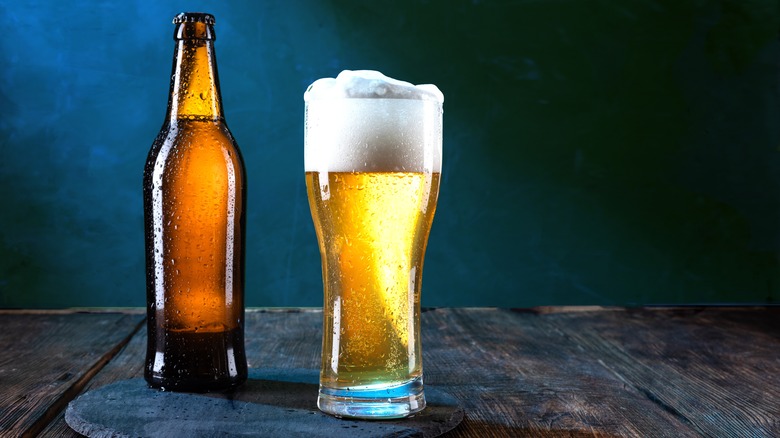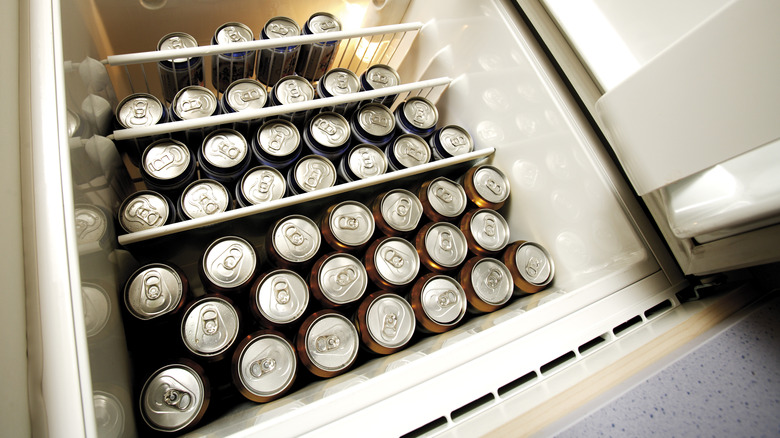How To Tell If Your Beer Has Gone Bad
It seems almost insulting for something as seemingly shelf-stable as beer to go bad. After all, this isn't some darn dairy product we're talking about, one that begins to deteriorate at the very moment of its creation. It's hearty, boozy, reliable old beer! The very fermentation by which it's made and the alcohol within it can both act as preservatives, for goodness' sake. But nothing gold (or generally amber-hued) can stay — and your beer can, in fact, go bad. Fortunately, there are some obvious signs where insult meets injury.
Actually, unlike spoiled milk, bad beer is unlikely to actually cause injury. In the worst case scenario, you'll just be left with skunky, worse-tasting beer. First of all, and most obviously, this alcoholic beverage is not wine. An ancient case of Ballantine or forgotten, discontinued Budweiser unearthed from grandpa's garage isn't aged. It's just old. While you might luck out, do not expect to crack open a true taste of the 1970s. Visual cues will be most useful for figuring out if beers you're familiar with are past their prime. If a beer's color or viscosity seem changed, skip it. Evolution also armed you with the ability to identify dangers via ickiness. If it tastes off, toss it. If a beer can is sharply dented, you'll also want to bin it. Although the risk of invading bacteria is less than it is with dented food cans, it is not zero.
How to keep your beer fresh
Don't want your beer to go bad? Drink it faster! All kidding aside, drink responsibly, but don't expect to be able to stock up on suds absent some kind of doomsday bunker scenario. Still, beer cans and bottles, which more or less share a shelf life, can be successfully stored in the refrigerator for about a year. Those best-by stamps you'll see on many batches also mean business, as your beer's quality might very well begin to deteriorate right on deadline.
It's also a good bet to keep any brew away from light and heat. Although beer in clear or lighter bottles is more vulnerable to skunking — the blight that tastes just like it sounds — from the sun, exposure won't do cans and darker glass any good, either. Any beer that's been exposed to air, like a half-full growler, should be consumed within a couple of days max. If you end up with extra for whatever reason you can theoretically freeze beer, but it's going to be better for cooking than chugging once it's time to thaw.

